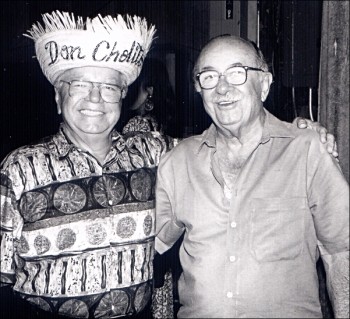Gilberto Cintrón Morelo: A passion for science born from the sea
Submitted by Wilson Gonzalez-Espada and Reyna I. Martínez De Luna on 16 February 2014 - 6:46pm
NASA Science Animation Fellowship
Submitted by Wilson Gonzalez-Espada on
NASA Earth Science Multimedia Fellowship
Submitted by Wilson Gonzalez-Espada on
Curso corto para maestros de física
Submitted by Wilson Gonzalez-Espada on
New details of Boricua genetics
Submitted by Wilson Gonzalez-Espada on
Meet the next “quenepas”: longan and rambutan
Submitted by Wilson Gonzalez-Espada on












